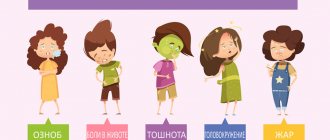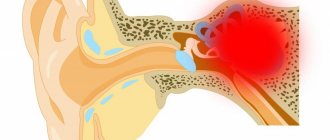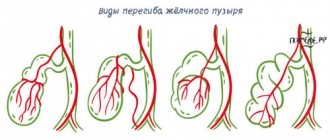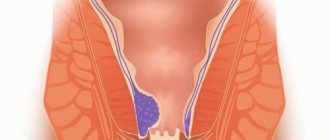1.What is food poisoning and its symptoms?
Food poisoning
is a disease caused by consuming foods containing
harmful microorganisms
.
These could be bacteria, viruses, parasites
. They are most often found in raw meat, chicken and eggs, but can be found in any other foods. In addition, dangerous microorganisms can accumulate in products stored on store shelves and outdoors, as well as on products that have been stored for too long before being consumed.
Most cases of food poisoning
It is relatively easy to tolerate and goes away on its own within a few days. During this time, harmful substances are removed from the body. But some types of food poisoning can be very serious and require consultation with a good physician.
Symptoms of poisoning
The first sign of poisoning
usually is
diarrhea
. In addition, abdominal pain, vomiting and stomach cramps may occur. Some food poisoning can cause high fever and blood in the stool. Symptoms of poisoning largely depend on the general health of the person and what microorganism caused the poisoning.
If vomiting and diarrhea
very strong,
dehydration
- loss of a large amount of body fluid. Signs of dehydration include dry mouth, dizziness, decreased urine output, and dark urine. In children and older adults, dehydration can occur very quickly. Poisoning and dehydration are especially dangerous for pregnant women, so if you suspect poisoning, they should definitely consult a doctor.
A must read! Help with treatment and hospitalization!
Causes of poisoning
Food poisoning is considered the most common. In products and prepared foods, pathogenic flora leads to the formation of exotoxins - cytotoxin and enterotoxin. When enterotoxins enter the body, accelerated synthesis of salts and liquids occurs in the intestines. In case of poisoning, a gag reflex and intestinal upset with diarrhea occur.
Cytotoxin, having penetrated the body, provokes damage to the mucous membranes of the gastrointestinal tract and causes a failure in protein synthesis. Poisoning without vomiting and diarrhea is possible for several reasons.
Factors:
- eating poor quality food,
- violation of the technology of heat treatment of products,
- lack of personal hygiene rules.
Food poisoning cannot be ruled out if people with various diseases were involved in the production of food or if they consumed dairy products from infected animals. More often, intoxication occurs in people with weak immune systems, children and pregnant women.
Symptoms of poisoning depend on the type of toxic compound and the amount ingested. Can there be poisoning without vomiting and without fever? This phenomenon is acceptable if the dose of the toxic substance is small. Inflammatory processes begin in the human body, and general symptoms of poisoning appear.
A deterioration in general condition is observed several hours after eating low-quality food. Specific symptoms appear, but there is no vomiting.
This form of poisoning passes quickly; after three days, the unpleasant sensations disappear and do not bother the person. The risk of developing negative consequences is lower compared to conventional intoxications.
We recommend: Sour cream poisoning of a child and an adult
2.How can harmful microbes get into food?
- During meat processing. There are bacteria in the intestines of animals that humans use as food. This is normal, but sometimes bacteria also get on those parts of animals (meat) that we eat.
- Because of the water that is used to water or wash fruits and vegetables. If there are microbes in this water (most often these are microbes from animal manure and household wastewater), they can transfer to the food.
- While cooking. If items that have germs on them come into contact with food, the germs can be transferred to them. For example, if you use the same cutting board to cut vegetables and raw meat, germs can transfer to the vegetables. The same thing happens if you don’t wash your hands well after cutting meat.
Visit our Therapy page
Poisoning without vomiting in a child
Children have a weak immune system, so poisoning occurs more often in them. Metabolism in a child's body is faster than in adults. Toxic compounds rapidly spread throughout all organs . Poisoning in a child without vomiting and without diarrhea develops quickly. Attentive parents will notice that the baby has become lethargic, apathetic, and has complaints of discomfort in the tummy.
If signs of intoxication without vomiting appear, the injured child must be given first aid and quickly shown to a doctor. The danger of such conditions is that due to the absence of vomiting, toxic elements remain inside the body and continue to poison it.
3.How do you know if you have food poisoning?
Since most poisonings are quite easily tolerated, people do not always turn to doctors about this. Usually the assumption of food poisoning is made if people who eat the same food get sick at the same time.
If the symptoms of poisoning are severe enough - there is severe vomiting or diarrhea
, or your health condition does not improve within a few days, it is better to consult a doctor. The doctor will be able to accurately determine the cause of the illness and say whether it is really poisoning. You may need to do blood and stool tests for an accurate diagnosis.
About our clinic Chistye Prudy metro station Medintercom page!
Symptoms without vomiting
Is there poisoning without vomiting and diarrhea with fever?
How do intoxications of this form manifest themselves? The absence of usual symptoms makes the course of poisoning milder and passes quickly. There are several frequently occurring symptoms. Symptoms:
- deterioration of general condition, weakness, lethargy,
- pain in the abdominal area,
- the desire to eat disappears,
- the temperature rises minimally,
- pallor of the upper layer of the epidermis,
- mild nausea.
We recommend: Why might adults have green stools?
The victim may not be vomiting, but may have intense diarrhea. If the temperature rises, it means that harmful bacteria have entered the intestines and the spread of harmful compounds continues there. If unpleasant symptoms occur, it is recommended to consult a medical professional.
4. Treatment and prevention
Treatment of poisoning
In most cases, food poisoning goes away on its own within two to three days. All you need to do is rest and drink more fluids
to prevent dehydration. You need to drink a cup of water or a special rehydration drink (it helps restore water-salt balance) with every large loose stool. Juices and other fruit drinks contain too much sugar and are not suitable for rehydration. In addition, doctors recommend starting to eat normally as soon as possible. As soon as eating stops causing you to vomit, you should try eating some of the food you usually eat. But you should avoid foods that are too fatty and too sweet.
Antibiotics are generally not used to treat food poisoning. Medicines may be prescribed to help stop diarrhea, but they are not recommended for young children. In addition, they should not be taken by adults if poisoning is accompanied by high fever and blood in the stool, because the condition may only worsen.
Severe dehydration, as well as severe poisoning (for example, botulism and intestinal infections), may require emergency medical attention and hospital treatment.
Prevention of poisoning
In most cases, these simple recommendations help prevent poisoning:
- Keep clean
. Wash your hands before preparing food, wash knives, cutting boards, and fresh vegetables and fruits well in hot water and detergent. - Separate foods
- do not store raw meat and other foods next to each other. Do not use the same dishes and cutlery for raw and cooked meat products. - Make sure that meat, chicken, fish, eggs are fully cooked
. - Put food in the refrigerator immediately
. Do not leave cut fruits and vegetables at room temperature for long periods of time. - If you doubt the quality of the product, throw it away. If you are not sure about the safety of food, do not eat it.
Intestinal infection or poisoning - only a doctor can figure it out!
Intestinal infection or poisoning - only a doctor can figure it out!
Acute intestinal infections and food poisoning are dangerous for both children and adults. Svetlana Alekseevna Solovyova, an infectious disease doctor at Children's City Clinic No. 39 in Nizhny Novgorod, will tell you how parents can protect their children and themselves from these unpleasant, extremely debilitating and very dangerous diseases.
Svetlana Alekseevna, how to suspect an intestinal infection in a child?
The first thing you need to pay attention to is the increase in temperature. The second is the appearance of symptoms of intoxication, which include refusal to eat, loss of appetite, poor sleep. The child becomes lethargic, irritable, and complains of a headache. The third important symptom is diarrhea, which is manifested by vomiting, abdominal pain, and loose stools. If all these symptoms appear, this is a reason to consult a doctor. I note that the incubation period of various acute intestinal infections can range from several hours to several days.
What mistakes do parents make when providing first aid?
You cannot put off your visit to the doctor. You should not self-medicate, especially starting treatment with antibiotics. If a child has a high temperature, you need to give an antipyretic and call a doctor. In addition, you need to provide the child with plenty of fluids - with vomiting and loose stools, he loses a lot of fluid, loses electrolytes, and dehydration occurs. Pharmacies sell special solutions, but if you don’t have such solutions at home, you can prepare such a solution yourself. For a liter of boiled water - one teaspoon of soda, a teaspoon of salt, 4 tablespoons of sugar. You can add a glass of freshly prepared orange juice. And give the child a teaspoonful of this solution. I note that intestinal infections are very contagious and spread very quickly, so you should definitely call a doctor at home.
Why is it necessary to call a doctor to your home?
The child must be examined at home for quarantine reasons to prevent the infection from spreading. The doctor must determine according to the child’s condition where he will be treated - at home or in a hospital, and, depending on the child’s condition, explains to the parents the treatment tactics if the child will be treated at home, or assigns him to a hospital. The doctor identifies a circle of contact persons in order to carry out anti-epidemic measures. In addition, you need to remember that another disease can “disguise” as an intestinal infection - for example, acute appendicitis, poisoning. The doctor finds out all this during the child’s first visit.
During the swimming season, doctors constantly record an increase in cases of enterovirus infection. What kind of infection is this and where can you “catch” it? How is it dangerous?
Viral diarrhea accounts for 90% of all acute intestinal infections. All viral diarrheas share a common mechanism of infection - enteral, or fecal-oral. It has three ways of implementation - water, food, contact and household. For young children, contact and household routes are typical, for schoolchildren - water and food routes. If we talk about enterovirus infection, it is most often found in water. It is characterized by seasonality - this is summer and autumn, the period of the swimming season. The cause of infection can be swimming in a lake with stagnant water, drinking unboiled water, or using contaminated water to wash fruits and vegetables. The last outbreak of this infection in the Nizhny Novgorod region was in 2013. I would like to note that enterovirus infection is very diverse; it has 14 clinical manifestations. At the same time, in terms of the severity of the disease, it is second only to influenza. In particular, in 2013, the infection proceeded as serous meningitis. With enterovirus infection, not only the gastrointestinal tract is damaged, but also the nervous system - inflammation of the membranes of the brain. Considering the particular danger of this infection, I want to tell parents - pay attention to the appearance of a constant, intense headache in the child, high temperature (38 and above) and vomiting. These are the three main warning signs of serous meningitis. In addition, there is also a specific meningeal symptom. You need to ask the child to tilt his head so that his chin touches his chest. If he cannot do this, this is an alarming sign - you should immediately consult a doctor.
What are the complications and consequences of acute intestinal infections?
Acute intestinal infection does not go away without leaving a trace, according to the “get sick, get well and that’s it” type. Consequences include functional constipation, lactose deficiency, post-infectious dysbiosis. Therefore, in addition to treatment of the acute stage, treatment during the recovery period is important.
Are there vaccines against intestinal infections?
Unfortunately, mass vaccination is not carried out, although vaccines against enterovirus and rotavirus infections exist. The fact is that the vaccine against enterovirus infection is not registered in Russia, and the vaccine against rotavirus infection is very expensive.
So the only defense is prevention?
The first main rule is to wash your hands. Especially before eating, before preparing food, after visiting public places. Now there are a lot of gels, sprays, wet wipes for hand disinfection, it is advisable to carry them with you. Under no circumstances should you drink water from untested sources - wells, springs, or swallow water when bathing. Drink only boiled or bottled water. For young children, shopping for groceries daily and preparing one meal for them is very important. Milk and cottage cheese for a child must be heat treated. When purchasing perishable products, look at their expiration dates. Ready-made meals purchased at the store should be consumed immediately, do not store in the refrigerator. Do not buy rotten fruits and vegetables in order to save money. Do not buy melons (watermelons and melons) in cut form. Wash fruits and vegetables, incl. bananas in a stream of running water. Do not buy products in spontaneous markets, from persons who do not have certificates for the products they sell. Every home should have cutting boards and knives separately for cutting raw and already cooked foods. All these simple rules will allow you to avoid intestinal infections and enjoy the outgoing summer and the coming autumn to the fullest.
Article provided by the advertising and information weekly 'Arena'.
Prevention and consequences
In cases of toxic poisoning without diarrhea and vomiting, serious consequences rarely occur.
Symptoms pass quickly and the condition improves. We recommend: Is it possible for children and adults to be poisoned by honey - symptoms
Poisonings that develop rapidly when there is no vomiting, but signs of intoxication appear intensely, are dangerous. If the victim’s condition worsens, the victim is sent to the hospital, where he will receive the necessary medical care.
It is possible to avoid such poisonings without vomiting if you follow preventive measures. They are quite simple and accessible to anyone.
Measures:
- Carry out thorough heat treatment of food.
- Observe personal hygiene rules.
- Choose food products carefully, study expiration dates and external data of the product.
- Carefully monitor food preparation and rinse meat before cooking with running water.
Following simple rules will help avoid negative consequences. If a person experiences unpleasant symptoms after eating, then such food must be removed from the table and not allowed to be consumed again.
Poisoning without vomiting can be dangerous to health in some cases. It is recommended to remember that in such cases, toxins remain in the body for some time. If the victim's condition worsens, it is necessary to transport him to a medical facility. In most cases, intoxication without vomiting ends quickly and without consequences.
Methods and methods for treating intoxication
In case of toxic poisoning without diarrhea and vomiting, it is recommended to call a doctor. Treatment of such intoxications is carried out in several ways.
Methods:
- Reception of adsorbents. Such drugs absorb toxic substances in the body, neutralize compounds and promote rapid elimination. Before use, it is recommended to study the instructions for use to exclude any contraindications.
- Use of laxatives. Medicines with a laxative effect speed up the process of eliminating toxic elements.
- Drink plenty of fluids. Taking a large volume of liquid will restore electrolyte metabolism and avoid dehydration. Drinking will help avoid negative consequences and serious stress on the kidneys. It is recommended to use dried fruit compote, herbal infusions, and non-carbonated mineral water.
- In some cases, it is possible to alleviate a person’s condition by inducing vomiting. To do this, the patient is given a large volume of water to drink, then they press on the root of the tongue and provoke vomiting.
You will like the article: “ Pills for nausea and vomiting for children in case of poisoning .”
After providing medical care, the patient is provided with rest, the situation and the actions taken are described to the doctor. In most situations, the discomfort goes away after a few days. However, if after five days there is no improvement, you need to visit a medical facility.
Nutrition plays a special role during the recovery period. Heavy foods are excluded from the diet - fried, smoked, fatty, sweet. It is recommended to eat lean meats, vegetable broths, light fruits and vegetables, and cereals. You need to eat in small portions, but often.











